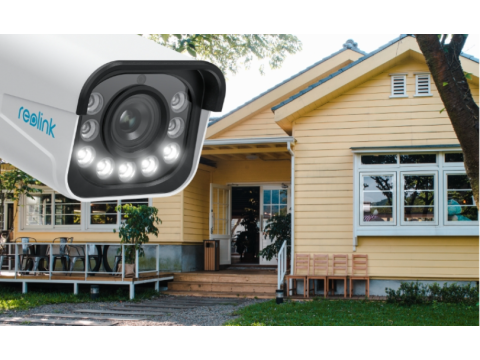Choosing the Right Surveillance System for Your Home
A robust home surveillance system is essential for enhancing the security of your property. Whether you're monitoring a private residence or a larger estate, understanding the unique requirements of outdoor and wireless surveillance can help you make informed decisions.
Outdoor Surveillance for Private Homes
When installing outdoor surveillance, consider the following primary zones:
- Perimeter monitoring: Ideal for detecting unauthorized access along the boundaries of your property.
- Property monitoring: Covers open spaces such as gardens or driveways.
- Entryway surveillance: Focuses on doorways and gates for better access control.
Challenges with Perimeter Monitoring
While useful, perimeter surveillance often requires:
- Narrow-angle cameras for detailed views.
- Mounting on tall, specialized poles, increasing installation costs.
This approach works best for high-security needs or large properties.
Wireless Surveillance Systems
Wireless cameras are a practical choice for homes with limited options for cabling. WiFi-enabled IP cameras are particularly suitable for:
- Aesthetic considerations: Eliminating the need for visible cables.
- Flexible installation: Easy to reposition as needed.
However, wireless systems have specific challenges:
- Signal Interference: Walls and outdoor elements can reduce signal strength.
- Power Sources: Cameras still require reliable power, either through existing lighting or solar panels.
Choosing the Right Equipment
When selecting a home surveillance system, focus on two key components:
Surveillance Cameras
- Choose cameras with adjustable focus lenses to customize coverage areas.
- Opt for analog cameras for cost-effective solutions or IP cameras for advanced features like remote monitoring.
Video Recorders
- DVRs (Digital Video Recorders): Best for analog setups.
- NVRs (Network Video Recorders): Ideal for IP systems with high-resolution recording.
Outdoor Camera Recommendations
Analog Cameras:
- Simple to set up and maintain.
- Reliable performance in various weather conditions.
IP Cameras:
- Necessary for wireless installations or remote access through the internet.
For outdoor setups, consider cameras with:
- Weather-resistant casings.
- Infrared (IR) night vision.
- Vandal-proof designs.
Practical Tips for Home Surveillance
- Position Cameras Strategically: Mount cameras high enough to avoid tampering but low enough for clear visuals.
- Use Lighting Effectively: Install motion-activated floodlights to enhance visibility.
- Invest in Vari-Focal Lenses: Adjust the field of view for changing needs without replacing the camera.
Conclusion
Choosing the best surveillance system for your private home involves careful consideration of camera type, installation method, and monitoring capabilities. By combining wired or wireless setups with strategically placed cameras, you can create a reliable and efficient system tailored to your security needs.
Secure your property today with the right surveillance solution!

